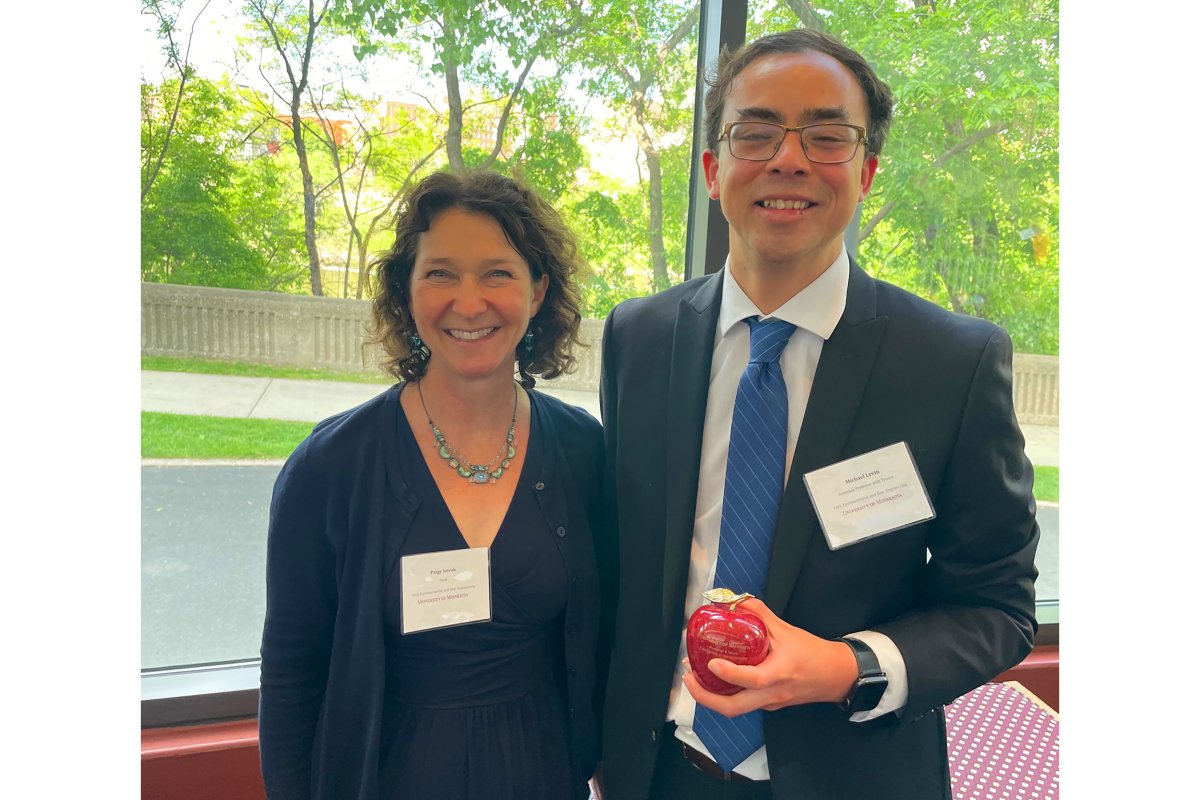Michael Levin promoted to Associate Professor

Michael Levin, a transportation engineer, studies and teaches in the Department of Civil, Environmental, and Geo- Engineering at the University of Minnesota. In May of 2024, he was promoted to Associate Professor with tenure. Levin came to the University in 2017 after completing his Ph.D. at the University of Texas at Austin.
Levin teaches courses in transportation engineering. He and colleague Raphael Stern developed an introductory course for lower-division students titled Emerging Technologies in Transportation: Automated and Electric Vehicles. In his research, Levin specializes in modeling transportation networks, centering his work at the intersection of transportation engineering, operations research, and computer science. He adapts operations research methodologies for transportation problems and uses data structures and algorithms to implement models and solutions in software. From July 2022 to July 2023, Levin worked as a Research Scientist at Amazon, helping to develop Supply Chain Optimization Technologies.
Some highlights of his research include a theory of Max-pressure traffic signal timing, which is proven to maximize city throughput using Markov chains. He works with Hennepin County engineers for a pilot deployment in Minnesota roads.
Another project Predicted the impacts of automated vehicles on traffic congestion. Levin modified state-of-the-art traffic flow and network models to include the modified driving behavior of automated vehicles to predict city traffic congestion as partial automation, like adaptive cruise control, becomes widespread.
He also studied Unmanned aerial vehicle conflict-free routing by creating a branch-and-price algorithm to optimize routing for drone delivery flights while avoiding midair collisions.